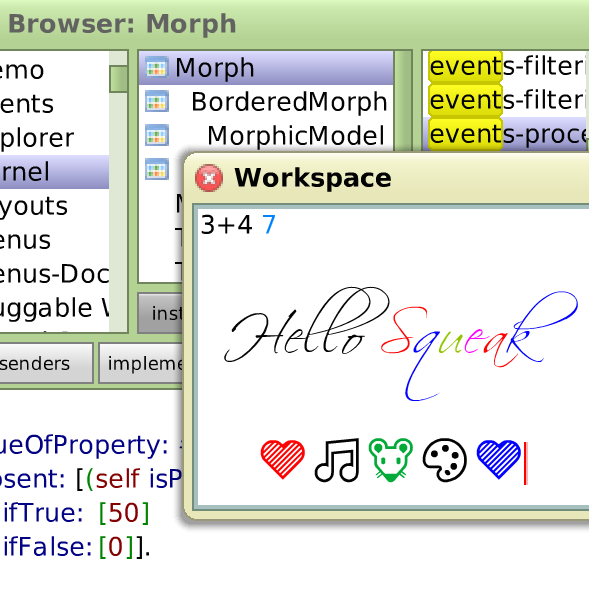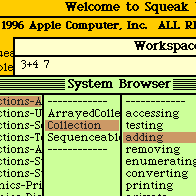Find more on files.squeak.org.
Quick Download
Current Release
Downloads come as *.zip, *.tar.gz, or *.dmg archives. On macOS, you must drag the included *.app file out of your ~/Downloads folder to avoid translocation; mv will not work. On Windows, you must confirm a SmartScreen warning since executables are not yet code-signed.
| Version | Support | Link | |
|---|---|---|---|
| macOS (unified) | 6.0 | ||
| Windows (x64) | 6.0 | ||
| Linux (x64) | 6.0 | ||
| Linux (ARMv8) | 6.0 | ||
| All-in-One (64-bit) | 6.0 | ||
| 32-bit Bundles | 6.0 |
❤️ Please help us keep our infrastructure up and running, which includes this website, our mailing lists, and code repositories. Donate here… ❤️

Current Trunk Image
You can always take a look at the progress in the latest alpha version. Feel free to participate with commits to the inbox. Alpha versions are not expected to be stable. Make sure to also get the latest VM.
| Link | |
|---|---|
| Trunk Image |
Advanced
Custom Installation
The Squeak/Smalltalk programming system consists of three parts:
- a virtual machine for your platform,
- both image and changes files of a particular version, and
- a sources file for the particular image file.
The image, changes, and sources files should be kept in the same folder. The base name of the image file must match the one of the changes file.
Windows/macOS: You can either drag the image file onto the virtual machine or double click the virtual machine. If there is more than one image file in the folder, a window will appear asking you which one to open.
Linux: Make sure that you have X11 installed, and that the squeak.sh script is executable. For 32-bit Squeak on a 64-bit platform, also have 32-bit libraries installed. Run the script with the image file as a parameter.
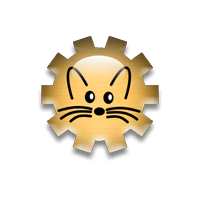
Virtual Machines
The virtual machine (VM) executes Squeak image files on a particular platform. There may be more recent versions here than ones included in the all-in-one package.
| Support | Link | |
|---|---|---|
| OpenSmalltalk VMs (stable) | ||
| OpenSmalltalk VMs (trunk) | ||
| TruffleSqueak | ||
| SqueakJS | ||
| Classic VMs |  | |
| Classic VMs (Interpreter) |  |
History
The first version of Squeak was released in 1996 at Apple Computer. It is a direct descendant of Smalltalk-80. While Squeak still supports the Model-View-Controller (MVC) model, its preferred UI framework is Morphic, which has been derived from the framework of the same name developed for Self.
Squeak is a self-supporting system that allows to generate new virtual machines (VMs) mostly from Smalltalk code. Originally developed on the Macintosh, members of its user community have since ported it to numerous platforms including Windows, macOS, and Linux.
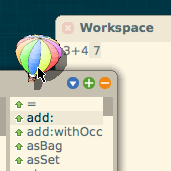
Squeak v5
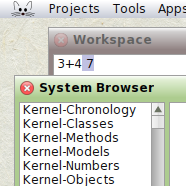
Squeak v4
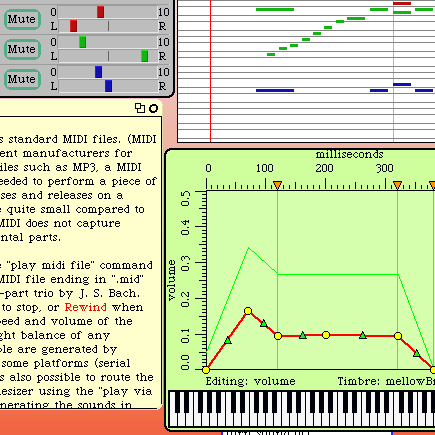
Squeak v3
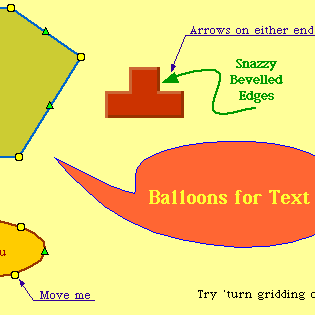
Squeak v2
Find more on files.squeak.org.


